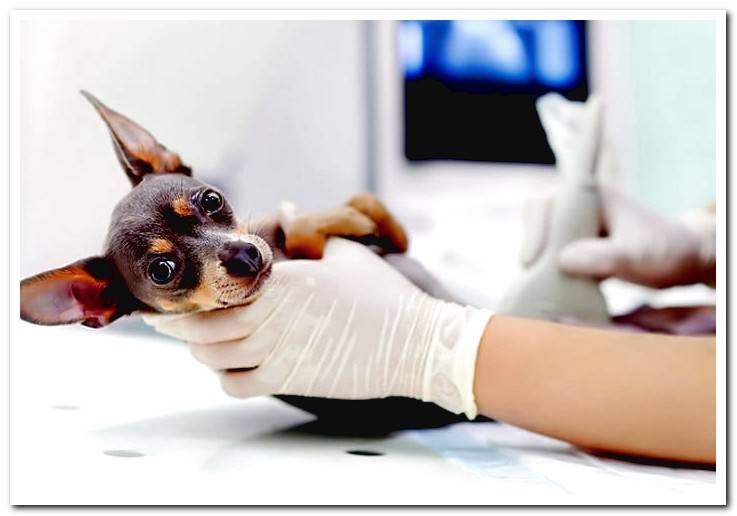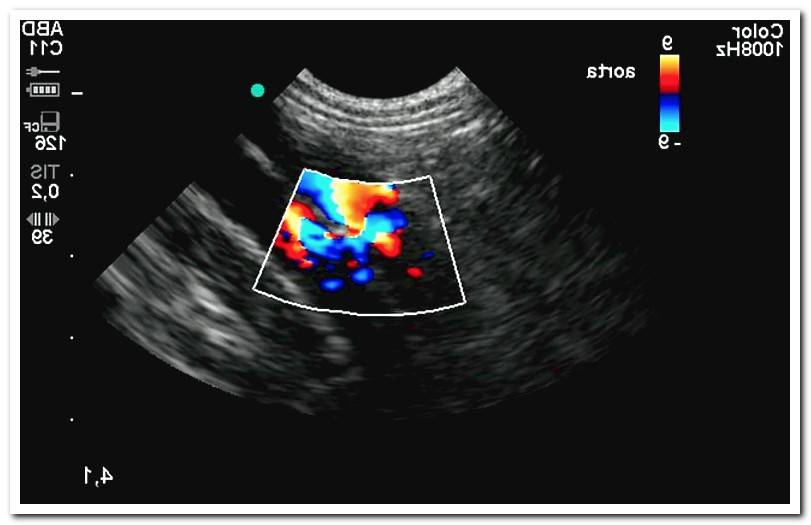
With the name of Inflammatory Bowel Disease, or IBD for its acronym in English, a series of diseases that affect the small and large intestines are grouped. All of them will have in common the appearance of chronic diarrhea.
To detect the specific disease, it will be necessary to perform an intestinal biopsy. With this test, the cause can be identified and the most appropriate treatment can be started. Dogs with IBD can greatly improve their quality of life with proper treatment.
Index of contents
- 1 Symptoms of Inflammatory Bowel Disease
- 2 What causes Inflammatory Bowel Disease?
- 2.1 Lymphocytic-plasmacytic enterocolitis
- 2.2 Eosinophilic enterocolitis
- 2.3 Granulomatous or regional enteritis
- 2.4 Histiocytic ulcerative colitis
- 3 Which dogs suffer from Inflammatory Bowel Disease?
- 4 How is Inflammatory Bowel Disease diagnosed?
- 5 Treatment of Inflammatory Bowel Disease
- 5.1 Nutritional supplements
- 6 Is Inflammatory Bowel Disease Cured?
Symptoms of Inflammatory Bowel Disease
Although there are several pathologies that a dog with Inflammatory Bowel Disease can have, in all of them we will be able to identify similar symptoms. The clinical picture can be mild, moderate or severe. The symptoms are as follows:
- Chronic and prolonged diarrhea.
- Bowel movements with mucus and blood.
- Nutrient malabsorption.
- Weight loss.
- Alterations in appetite.
- Anemia.
- Malnutrition.
- Vomiting
What causes Inflammatory Bowel Disease?
As its name indicates, the main characteristic of this type of disease is inflammation of the large intestine, the small intestine or both. Depending on the pathology involved, the abundant inflammatory cells found in the digestive tract will be different. Identifying them will allow finding the specific disease.
Lymphocytic-plasmacytic enterocolitis
Of these diseases, it is the one that is diagnosed in the highest percentage in dogs. It is also known by its acronym LPE in English. It is believed that it can be associated with presence of giardias, which are protozoan parasites, food allergies or overpopulation of the intestinal bacterial flora.
As the name suggests, lymphocytes, which are white blood cells, and plasma cells, which are immune cells, are to be found in the digestive tract. Seems to have a genetic basis, since there are races that are affected in a greater percentage. They are the Basenji or the Shar pei.
Eosinophilic enterocolitis
This disease is less common. Eosinophils, which are white blood cells, are found in the gastrointestinal tract, which can also be tallied in a blood test. It is associated with food allergies or parasitosis caused by nematodes or hookworms.
Granulomatous or regional enteritis
This ailment is often compared to Crohn’s disease that affects humans. In this case, the fat and lymph nodes in the final section of the large intestine become inflamed. This causes the area to thicken and narrow. The cells that are located are macrophages, cells of the immune system.
Histiocytic ulcerative colitis
This pathology affects especially Boxer breed specimens and, in addition, begins to manifest itself at a very young age, before the dog is two years old. Those affected will suffer severe diarrhea with mucus and blood.
Which dogs suffer from Inflammatory Bowel Disease?
We have seen that some of the diseases included in this group seem to have a genetic basis, since they affect certain races in a higher percentage. In addition to those mentioned, the German Shepherd stands out. The long-haired variety even suffers from a specific enteropathy.
But this does not mean that only breed dogs get IBD, since any specimen may be affected, regardless of their race. That yes, the dogs of middle and old age are those that with more frequency begin to present the symptoms of Inflammatory Bowel Disease.

How is Inflammatory Bowel Disease diagnosed?
To reach a diagnosis, it is necessary to determine which inflammatory cells are in abundance in the intestines. An x-ray or ultrasound can show intestinal inflammation. Fecal cultures can also be done in search of bacteria. But it is not enough to find the specific disease.
Only the biopsy will allow us to identify it. It consists of taking a fragment of the intestine to analyze in the laboratory. The way of obtaining this sample is invasive. It is achieved by endoscopy or exploratory surgery, with endoscopy being the most recommended as it is the least invasive and dangerous for the dog.
Treatment of Inflammatory Bowel Disease
It is prescribed depending on the cause. It is usually essential and very useful to change the dog’s diet to a hypoallergenic one, which helps control symptoms. This feed must rely on protein and carbohydrates that the dog has never consumed. Diets of this type can be bought, but homemade food is even more advisable.
Feeds made with hydrolyzed proteins can also be used. When there is a bacterial overgrowth, antibiotics are prescribed, such as metronidazole, which is also effective against giardiasis and inflammation. In addition, immunosuppressive drugs such as prednisolone, which is a glucocorticoid, or azathioprine are often used.
In this case, the idea is to reduce the dose. On the other hand, when the intestine has narrowed, the affected portion must be removed by surgery. We must keep in mind that treatment may vary over time and the vet will have to adjust it whenever necessary in order to preserve, as much as possible, the dog’s quality of life.
Recent veterinary advances have shown that the use of stem cells It seems to help greatly improve the condition of the most affected dogs, helping the intestines to recover. Always in conjunction with a specific diet and the mentioned medications.
Nutritional supple
ments
In addition to changes in diet, it is possible to complete the treatment by resorting to food supplements. For example, highlights vitamin B12, since it is common for the sick dog to not absorb it well, so it will be deficient.
Vitamin K is also often decreased, so it will have to be supplemented. Short chain fatty acids, prebiotics or probiotics are other recommended supplements for the treatment of these pathologies.
Is Inflammatory Bowel Disease Cured?
For diseases that fall under this name, there is treatment that improves the dog’s living conditions. But complete healing is unlikely, although the prognosis will depend on the cause. IBD is considered a chronic course disease in which there may be relapses, even if the dog is properly medicated.
